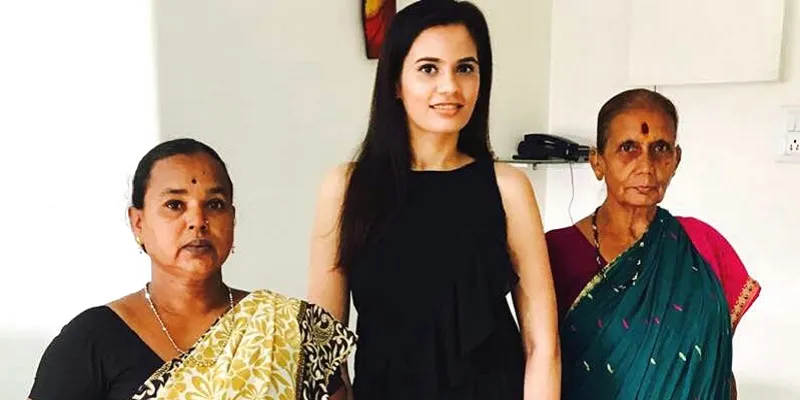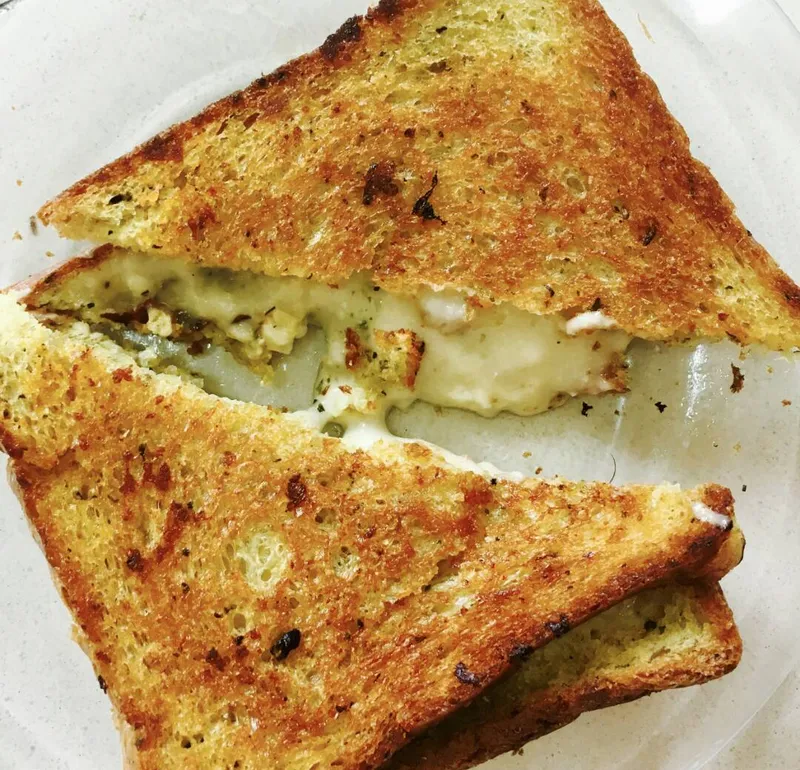Why a princess from Sharjah decided to invest in Mumbai-based Wegan Foods
After a B2C launch, Mumbai-based vegan food startup Wegan Foods plans to set up a B2B network with coffee shops, restaurants, hotels, and catering firms.
Most vegans face one vexing and common issue: explaining why they choose to be vegan. Questions that come their way routinely include – how can you survive without cheese and milk? What about chocolates?
While it is known to many that substitutes are available for these products, first-time vegans take some time to actually get the right products.
“When you turn vegan, it is challenging to explain to people why veganism,” attests Kinjal Darukhanawala, a vegan and the Founder of Wegan Foods, a food startup that makes vegan cheese for commercial purposes.
The food startup raised an undisclosed round of funding in June this year from Her Highness Sheikha Arwa Al Qassimi, a member of the royal family of Sharjah and Ras Al Khaimah.
A women-centric focus
So is Her Highness vegan? Kinjal says while it has been a common question, the princess isn’t vegan.
Explaining why she chose to invest in Wegan Foods even before the stores opened, Her Highness explains to YourStory:
“I have invested in Wegan Foods in my personal capacity. However, my decision to invest has been driven by two facts. Women empowerment is a cause I champion. When I came to know that Kinjal plans to have a 90 percent women workforce by hiring from organisations that groom and empower women from disadvantaged backgrounds, I was impressed. This is the biggest motivation for me. Further, this food startup will help people looking for healthy alternatives to eating.”
When Kinjal thought of starting Wegan Foods, she wanted to hire more women. Explaining the reasons, she says the culinary world is male-dominated.
“There are many women out there, and I wanted to give them an opportunity to make a mark even in the culinary world,” Kinjal says.

Bringing women to the forefront
While the process of making different kinds of cheese was going on, Kinjal began hiring as well. She got in touch with an HR agency that generally hires for restaurants and caterers. They, in turn, reached out to NGOs that work to empower women from impoverished backgrounds and help them get back into the workforce.
Sheikha Arwa Al Qassimi adds that even though about 50 percent of the world’s population consists of women, unfortunately, most of them are denied basic rights such as education, freedom of speech, voting power and even an independent identity.
“According to the United Nations, two-thirds of the 774 million adult illiterates worldwide are women – the same proportion for the past 20 years and across most regions. Simply put, women and girls are the most potentially capable untapped resource on the face of the earth. This is why we need women empowerment. That’s also why the Gender Equality goal of the United Nations Millennium Development Goals is so important,” she says.
For Kinjal, the journey began when she was pregnant with her daughter and had decided to take a sabbatical. After working for over six years on her digital marketing company with her husband, Kinjal had taken a sabbatical for a year-and-a-half. It was during this time that she turned to veganism.
Building her own brand
After watching several documentaries, Kinjal realised that being vegetarian wasn’t enough. And in the process of turning vegan, Kinjal ended up researching different products and services and realised that there was an ecosystem.
“Here in Mumbai itself, there is the tiffin service Vegan Bites. Sharan India has been around for a decade; there is awareness but few services,” Kinjal says.
She also realised that dairy-free products - Cheddar, mozzarella and yogurts – were available internationally. And she soon learnt that there were different ways and methods of developing and making vegan products. While there was awareness, accessibility wasn’t easy. One had to order through international portals or go to a farmers market. Most vegan products were also not easily available at modern trade outlets.
This got Kinjal thinking. She believed that if people wanted to turn vegan, it shouldn’t be that difficult. Even if a vegan goes to a restaurant, he or she should have options.
“I was getting back to work after two years and after building other brands I really wanted to build my own brand. And that is how I came up with the idea of Wegan Foods,” Kinjal says.
Experimenting in the kitchen
However, the formulation took eight months to crack. Kinjal says that cheese, even if it is vegan, needs to have certain qualities, texture and flavour. It should be able to slice, grate and melt well.
This meant several levels of experimentations in the kitchen and going through the food-tasting process. Some neighbourhood cafes and restaurants were kind enough to let Kinjal use their commercial kitchen to see how her cheese reacted in a woodfired oven.
Kinjal’s work won her approval from Her Highness.
“Kinjal is a very passionate and strong woman. I was impressed with her idea on how she intends to take Wegan Foods forward from a social angle. Also, the fact that they are creating a range of products that are delicious and dairy free. I believe there is great potential in the product and the idea. The products will address a growing market of vegans and people who may want to choose a healthier dietary lifestyle,” Her Highness says.
Since the beginning of the year, the team has worked on building the kitchen and getting FSSAI accreditations.
This month, Wegan Foods is launching their Dairy Free Cheese. This non-dairy cheese will go perfectly well with pastas, pizzas, nachos, grilled cheese sandwiches and burgers. The vegan cheese is soy and gluten free.

The team is also working on its next product, based on an oat formula.
“The first product development took close to six months. The idea is not just being vegan but also carrying a line of products that are delicious and nutritious for all age groups to devour. A lot of people have preconceived notions about vegan food; they think it is boring, tasteless and does not h have an original taste and flavour. Our brand plans to banish these notions,” Kinjal says.
Initially, Kinjal had reached out to food technologists to work on different kinds of products, but she soon found it easier to work with chefs and experiment herself. She had realised that there were few people who looked at veganism and understood the needs of the diet.
“I read loads of books, spoke to many people and did a lot of experiments. And then finally was able to work along with different recipes,” Kinjal says.
The team is eyeing B2B production in the near future and is conducting test runs with a few restaurants.
Currently, in B2C, the shelf life of the product is seven days when refrigerated. If frozen, the life is for over a month. About 50 gram of the product is priced at Rs 350.







